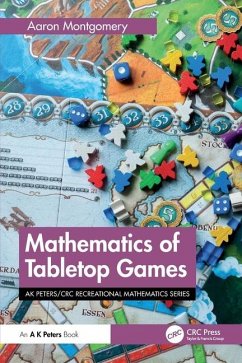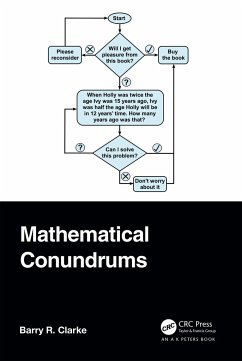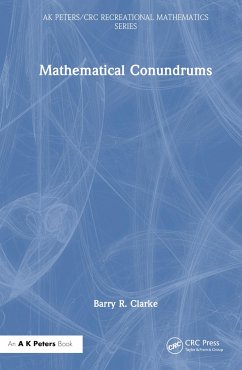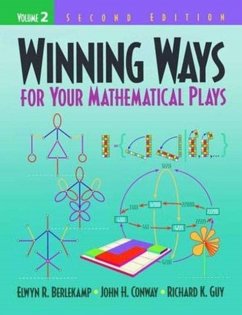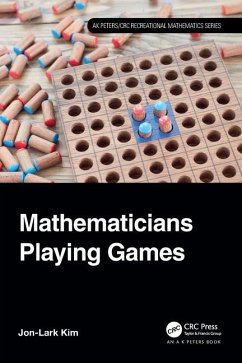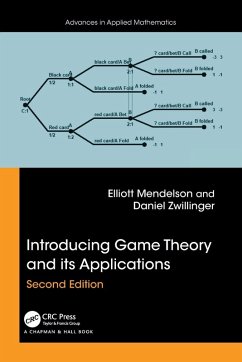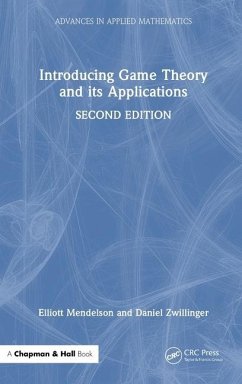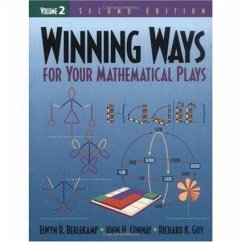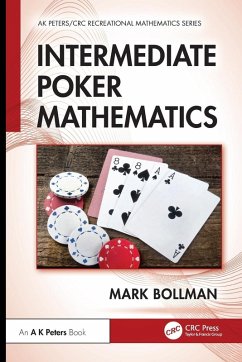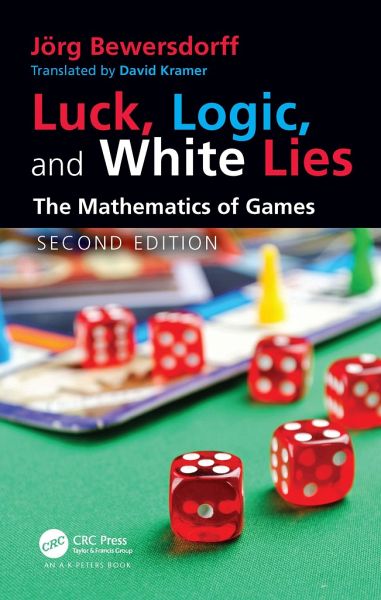
Luck, Logic, and White Lies
The Mathematics of Games
Versandkostenfrei!
Versandfertig in 6-10 Tagen
51,99 €
inkl. MwSt.

PAYBACK Punkte
26 °P sammeln!
Praise for the First Edition"Luck, Logic, and White Lies teaches readers of all backgrounds about the insight mathematical knowledge can bring and is highly recommended reading among avid game players, both to better understand the game itself and to improve one's skills."- Midwest Book Review"The best book I've found for someone new to game math is Luck, Logic and White Lies by Jörg Bewersdorff. It introduces the reader to a vast mathematical literature, and does so in an enormously clear manner. . ."- Alfred Wallace, Musings, Ramblings, and Things Left Unsaid"The aim is to introduce the mat...
Praise for the First Edition
"Luck, Logic, and White Lies teaches readers of all backgrounds about the insight mathematical knowledge can bring and is highly recommended reading among avid game players, both to better understand the game itself and to improve one's skills."
- Midwest Book Review
"The best book I've found for someone new to game math is Luck, Logic and White Lies by Jörg Bewersdorff. It introduces the reader to a vast mathematical literature, and does so in an enormously clear manner. . ."
- Alfred Wallace, Musings, Ramblings, and Things Left Unsaid
"The aim is to introduce the mathematics that will allow analysis of the problem or game. This is done in gentle stages, from chapter to chapter, so as to reach as broad an audience as possible . . . Anyone who likes games and has a taste for analytical thinking will enjoy this book."
- Peter Fillmore, CMS Notes
Luck, Logic, and White Lies: The Mathematics of Games, Second Edition considers a specific problem-generally a game or game fragment and introduces the related mathematical methods. It contains a section on the historical development of the theories of games of chance, and combinatorial and strategic games.
This new edition features new and much refreshed chapters, including an all-new Part IV on the problem of how to measure skill in games. Readers are also introduced to new references and techniques developed since the previous edition.
Features
Provides a uniquely historical perspective on the mathematical underpinnings of a comprehensive list of games Suitable for a broad audience of differing mathematical levels. Anyone with a passion for games, game theory, and mathematics will enjoy this book, whether they be students, academics, or game enthusiasts Covers a wide selection of topics at a level that can be appreciated on a historical, recreational, and mathematical level.
Jörg Bewersdorff (1958) studied mathematics from 1975 to 1982 at the University of Bonn and earned his PhD in 1985. In the same year, he started his career as game developer and mathematician. He served as the general manager of the subsidiaries of Gauselmann AG for more than two decades where he developed electronic gaming machines, automatic payment machines, and coin-operated Internet terminals.
Dr. Bewersdorff has authored several books on Galois theory (translated in English and Korean), mathematical statistics, and object-oriented programming with JavaScript.
_Here is the list of Errata for the second edition of Luck, Logic, and White Lies: The Mathematics of Games: http://bewersdorff-online.de/LLWL-errata.pdf
"Luck, Logic, and White Lies teaches readers of all backgrounds about the insight mathematical knowledge can bring and is highly recommended reading among avid game players, both to better understand the game itself and to improve one's skills."
- Midwest Book Review
"The best book I've found for someone new to game math is Luck, Logic and White Lies by Jörg Bewersdorff. It introduces the reader to a vast mathematical literature, and does so in an enormously clear manner. . ."
- Alfred Wallace, Musings, Ramblings, and Things Left Unsaid
"The aim is to introduce the mathematics that will allow analysis of the problem or game. This is done in gentle stages, from chapter to chapter, so as to reach as broad an audience as possible . . . Anyone who likes games and has a taste for analytical thinking will enjoy this book."
- Peter Fillmore, CMS Notes
Luck, Logic, and White Lies: The Mathematics of Games, Second Edition considers a specific problem-generally a game or game fragment and introduces the related mathematical methods. It contains a section on the historical development of the theories of games of chance, and combinatorial and strategic games.
This new edition features new and much refreshed chapters, including an all-new Part IV on the problem of how to measure skill in games. Readers are also introduced to new references and techniques developed since the previous edition.
Features
Provides a uniquely historical perspective on the mathematical underpinnings of a comprehensive list of games Suitable for a broad audience of differing mathematical levels. Anyone with a passion for games, game theory, and mathematics will enjoy this book, whether they be students, academics, or game enthusiasts Covers a wide selection of topics at a level that can be appreciated on a historical, recreational, and mathematical level.
Jörg Bewersdorff (1958) studied mathematics from 1975 to 1982 at the University of Bonn and earned his PhD in 1985. In the same year, he started his career as game developer and mathematician. He served as the general manager of the subsidiaries of Gauselmann AG for more than two decades where he developed electronic gaming machines, automatic payment machines, and coin-operated Internet terminals.
Dr. Bewersdorff has authored several books on Galois theory (translated in English and Korean), mathematical statistics, and object-oriented programming with JavaScript.
_Here is the list of Errata for the second edition of Luck, Logic, and White Lies: The Mathematics of Games: http://bewersdorff-online.de/LLWL-errata.pdf





